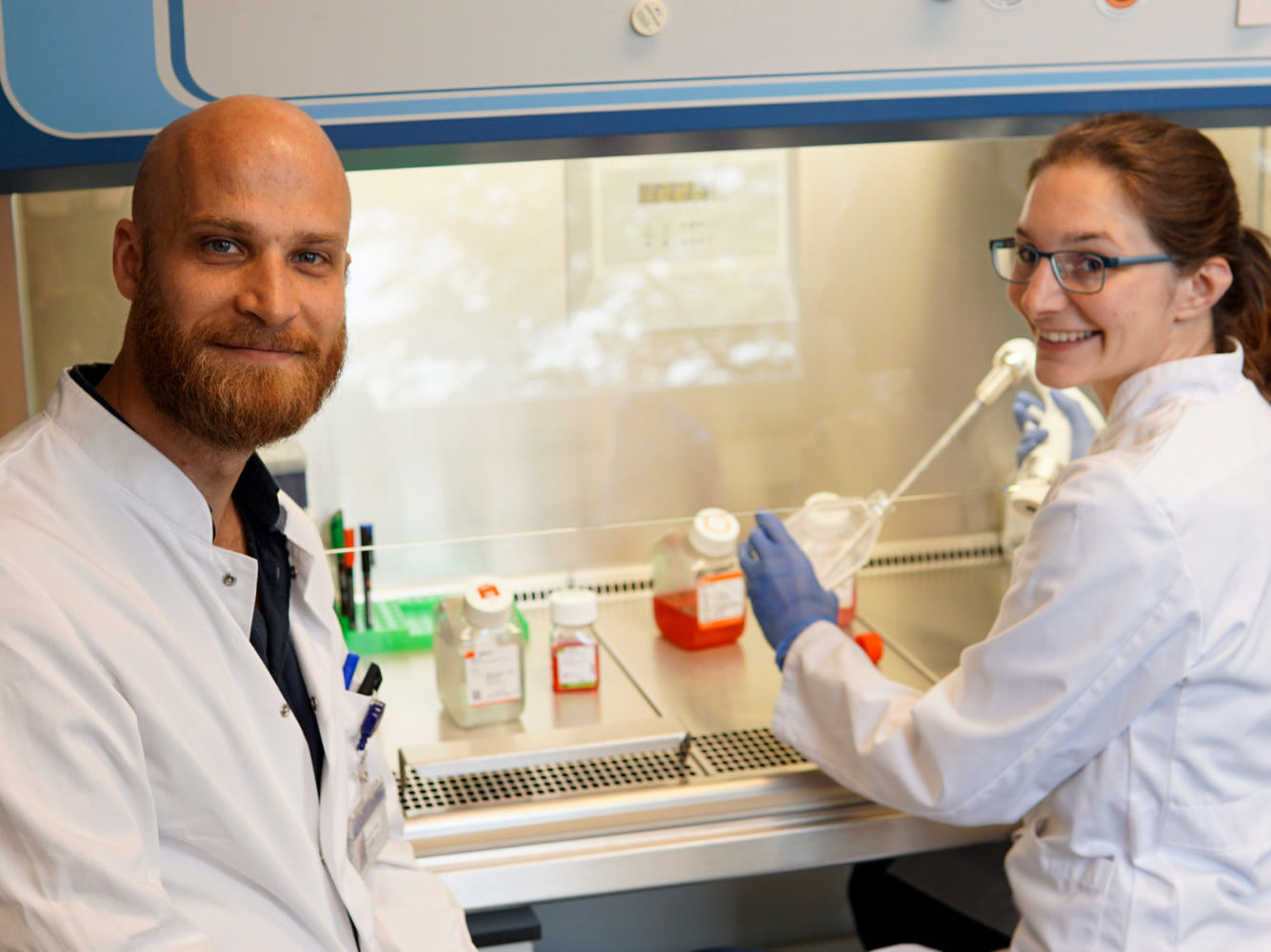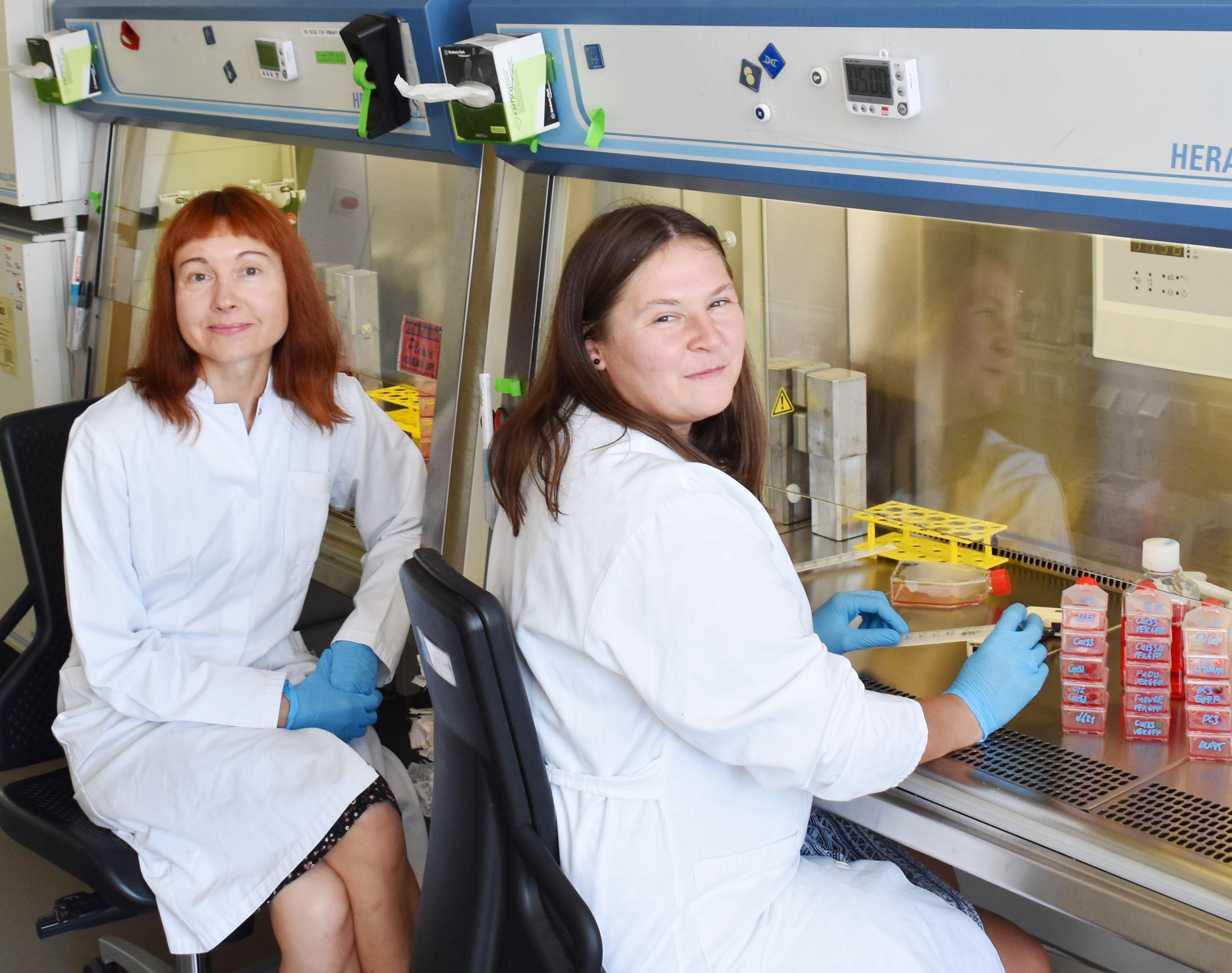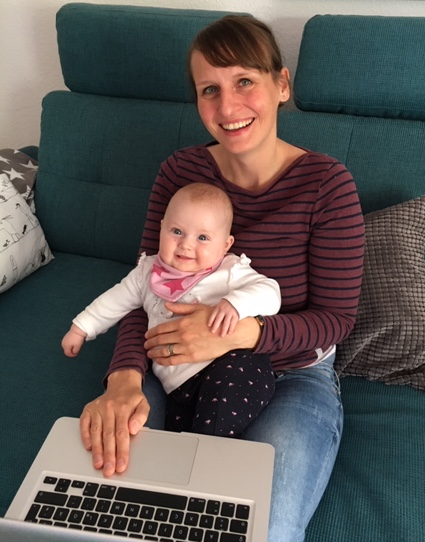by Prof. Dr. Tobias Lange and Dr. Vera Labitzky (University Medical Center Hamburg-Eppendorf)
The main research focus of our group has been to study distant metastasis formation in human prostate cancer for several years. We are using xenograft mouse models that spontaneously develop distant metastases from an initial primary tumor; therefore, we indeed consider the entire metastatic cascade, but normally detect single disseminated tumor cells (DTC) in the bone marrow only. These spontaneous DTC obviously remain in a dormant phenotype as they don’t grow out to metastatic colonies despite prolonged experimental periods. As such, our models reflect the clinical situation as in prostate cancer patients it can take several years from initial therapy to occurrence of clinically manifest bone metastases.
We recently identified tumor-secreted factors that might regulate the dormant phenotype of disseminated prostate cancer cells in vivo and in patients. The central aim of this project is therefore to provoke outgrowth of spontaneous single cell bone metastases in our mouse models by targeting the identified factors in the tumor cells themselves or their receptors in the tumor microenvironment. This would enable further, unbiased studies on the pathways that regulate metastatic dormancy in spontaneous prostate cancer bone metastases.
Our aim as basic researchers is to gain novel insight into the biology of bone metastasis formation. We hope that this might help to develop novel therapeutic strategies one day.




